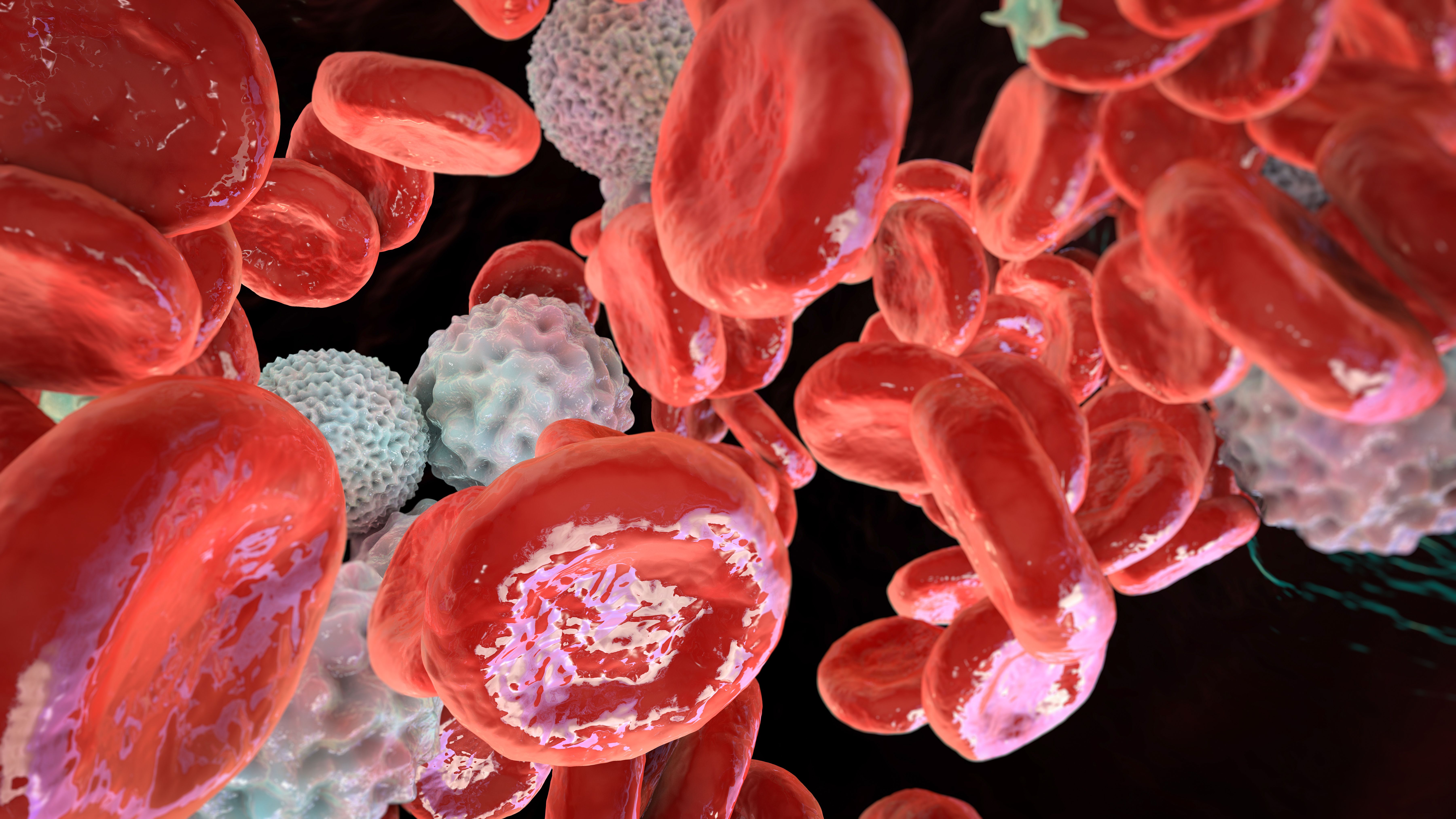NCCN Guidelines Recommend Ropeginterferon alfa-2b-njf for Polycythemia Vera
Ropeginterferon alfa-2b-njft was added to the NCCN guidelines and granted category 2A status for the treatment of polycythemia vera.
Image Credit: © Dr_Microbe [stock.adobe.com]

The National Comprehensive Cancer Network (NCCN) Clinical Practice Guidelines in Oncology have been updated to include ropeginterferon alfa-2b-njft (Besremi) as a preferred treatment option for patients with high- and low-risk polycythemia vera (PV), irrespective of treatment history, according to PharmaEssentia USA Corporation.1
In the update, ropeginterferon alfa-2b-njft was also granted category 2A status, meaning that there is uniform consensus from the NCCN that the treatment is appropriate.
“Importantly, the NCCN Guidelines update includes moving ropeginterferon alfa-2b to preferred status, reinforcing to treating physicians and patients that with its broad utility, ropeginterferon alfa-2b is recommended for proactively treating PV,” said John Mascarenhas, MD, professor of medicine, hematology, and medical oncology at the Icahn School of Medicine at Mount Sinai in New York, New York, in a press release.
Previously in November 2021, the FDA granted approval to ropeginterfeon alfa-2b for the treatment of adult patients with PV. This regulatory approval was supported by findings from the PROUD/CONTINUATION-PV trials (NCT01949805; NCT02218047) which showed that patients treated with ropeginterferon alfa-2b-njft had high and durable hematological responses vs hydroxyurea.
In the PROUD-PV study, 21% patients given ropeginterferon alfa-2b and 28% patients given standard therapy met the primary end point of complete hematological response with improved disease burden and normal spleen size. Then in the CONTINUATION-PV trial, 61% of patients experienced a complete hematologic response with the agent after 7.5 years of treatment., and 80% achieved hematological response.
In the combined safety population of patients from both trials treated with ropeginterferon alfa-2b, the most common adverse events (AEs) observed were influenza-like illness, arthralgia, fatigue, pruritus, nasopharyngitis, and musculoskeletal pain, and serious AEs were seen in more than 4% of patients, consisting of urinary tract infection, transient ischemic attack, and depression.
Currently, the ECLIPSE trial (NCT05481151) for patients with PV is under investigation. The phase 3b ECLIPSE PV trial (NCT05481151) will randomly assign patients to an accelerated dosing schedule for ropeginterferon alfa-2b and compare it to the current labeled dosing for the agent.2
Investigators are evaluating the primary end point of proportion of patients achieving a complete hematologic response at 24 weeks of treatment, defined as hematocrit below 45% for at least 3 months since last phlebotomy, platelets not exceeding 400 x 109/L, and leukocytes of 10 x 109/L or below.
To further evaluate ropeginterferon alfa-2b, several planned studies are ongoing, including in the SURPASS (NCT04285086) and EXCEED trials (NCT05482971) for patients with essential thrombocytopenia. A phase 3 clinical trial in primary myelofibrosis is also anticipated.
“This recent update to treatment guidelines by NCCN represents the community’s recognition of the value of ropeginterferon alfa-2b as a therapeutic option for all adults with PV, regardless of their treatment history,” said Raymond Urbanski, MD, PhD, US head of Clinical Development and Medical Affairs, in the press release. “Given its deep, durable control over the disease beyond the symptoms, we’re continuing to study ropeginterferon alfa-2b in PV, as well as other myeloproliferative neoplasms and hematologic malignancies.”
REFERENCES:
NCCN clinical practice guidelines in oncology updated to recommend BESREMi® (ropeginterferon alfa-2b-njft) as a preferred intervention for polycythemia vera. News release. PharmaEssentia USA Corporation. May 23, 2023. Accessed May 24, 2023. https://tinyurl.com/44u8ycuw
A study to assess efficacy, safety, and tolerability of P1101 in adult patients with PV. ClinicalTrials.gov. Updated March 27, 2023. Accessed May 24, 2023. https://clinicaltrials.gov/ct2/show/NCT05481151